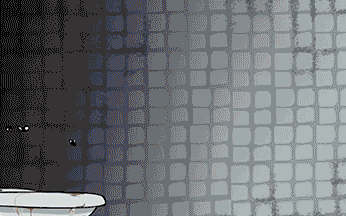Eh.
It was no primer.
I appreciated the narrative on a sort of technical level, but didn't enjoy the ending at all. I was going along with it when they revealed her to be your daughter, but right at the end when you turned out to be Comstock I full on burst out laughing. I think the plot was all much stronger and more enjoyable prior to the closing 90 minutes or so.
There was something about all the reality shifting that bothered me throughout most of the game, but didn't really come to a head and really irk me until the end. After reflecting for a few minutes on it, I would use two words to describe it: "fuzziness", and "convenience". These two naturally overlap, but I'll do my best to explain what I mean.
Fuzziness is the vague and inconsistent way in which the multiverse stuff acts. Sometimes, tears are portals to the same time and the same place in an alternate reality. Sometimes, tears are portals to the same place but a different time. Sometimes, tears are portals to different places, at either the same time, or a different time. It's unclear as to why tears exist at all, or why the ones that randomly appear around need to be "opened" to let you through, but somehow allow sound to pass through with no worries so that those guys could hear future songs and make bank off them in the past. Why aren't past, present and future time travelers jumping around all the time? Why aren't alternate universe travelers stealing things from your universe like you are from theirs? Particularly since we know for a fact there are infinite Bookers and Elizabeths running around at the same time, presumably doing slight variations on what you're doing. Why can killing Booker at the end stop all Comstock's somehow, or make things right? If past present and future is simultaneous, as the twins keep discussing in their philosophical teasings, how can changes happen at all?
Convenience is how the fuzziness always works to make the plot work. Obviously, I understand that this was written by a human person who wanted to make the plot work. There is a line repeated once or twice by Elizabeth about how the tears are "possibly" a kind of wish fulfillment. Thus, the stage is set for tears to do whatever the fuck the plot needs to drive the characters forward. This isn't by no means a plot hole, but boy it sure is convenient. But the convenience goes beyond stuff like how the tears that appear are always exactly what they need to overcome some obstacle they're faced with, and extends to the narrative itself. The way that the reality shifts work to obscure your memories serves no purpose except to facilitate twists and so forth. I consider it no less groan-worthy than plot induced amnesia, partly because that's exactly what it is anyway. It goes beyond just your character getting confused during shifts, to the point where they say that you invented a bunch of your memories retrospectively, and also got highly fucking selective amnesia so that the fine details that are relevant to the story got forgotten. They didn't just keep details from you, they lied to you. I probably would have looked on this a bit more kindly had they not pulled the exact same stunt with the first Bioshock.
Anyway, I enjoyed the aesthetic and the Barber's Shop Quartet at the start was worth the price of admission. Unlike the first Bioshock, I didn't get so sick of the mediocre game-play that I quit part way and looked the rest up on Youtube, which is a good sign for the direction the series has taken.


